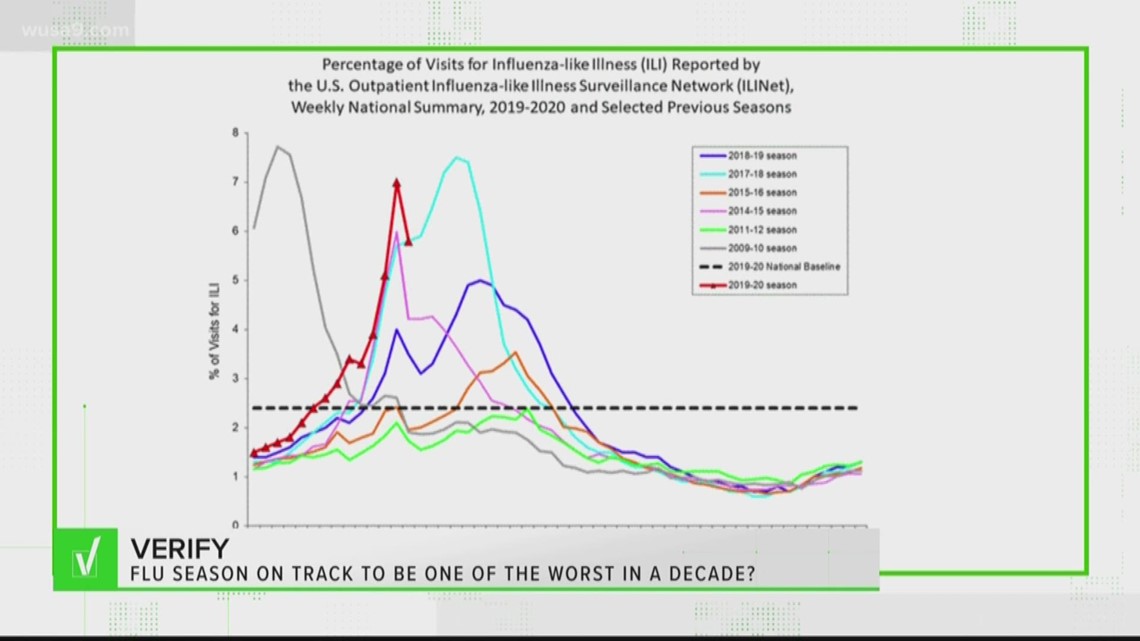WASHINGTON — February is historically the peak month for flu-related illnesses, and there have been 12,000 deaths so far this season in the United States, according to the Center for Disease Control.
While the new coronavirus has become the latest international scare — and it has killed more than 900 people so far — flu-related illnesses are on the rise in parts of the DMV.
The Maryland Department of Health reported that last week, the state saw the most patient visits for flu-like illnesses than any other week in the last four years.
Their data showed that hospitalizations did decrease a bit, though, during that period.
So far, Maryland has seen 22 adult deaths and three pediatric deaths, according to the report.
Compare that to Virginia, which reports 773 adult flu-related deaths this season, but zero pediatric deaths.
Flu activity in Virginia has been listed as widespread for the last 10 weeks, per the Virginia Department of Health, which the report shows started earlier than last flu season.
The Department of Health for the District of Columbia did not have data on adult deaths available to the public, but reports zero pediatric flu-related deaths this season.


RELATED: VERIFY: Yes, in terms of illness, this flu season is shaping up to be one of the worst in a decade
"We can say that it is on course of being at least as bad as the worst two seasons we’ve had in the last ten years," Dr. Anthony Fauci, who is with the National Institute of Allergy and Infectious Diseases at the National Institute of Health, told the WUSA9 research team.
The CDC reports that in terms of overall severity, which is determined by hospitalizations and deaths, this season has yet to reach a severe level.
At this point in time, CDC data shows 22 million flu-like illnesses and 210,000 hospitalizations.
Still, the center's website says it is best to be prepared by getting the flu vaccine.
And, their website says it is not too late to get one now:
"CDC recommends that people get a flu vaccine by the end of October. Getting vaccinated later, however, can still be beneficial and vaccination should continue to be offered throughout the flu season, even into January or later."
The CDC said if the vaccine virus is similar to most circulating viruses, the shot is between 40% and 60% effective.
The website said it takes about two weeks for antibodies to form in the body to protect against the flu.

